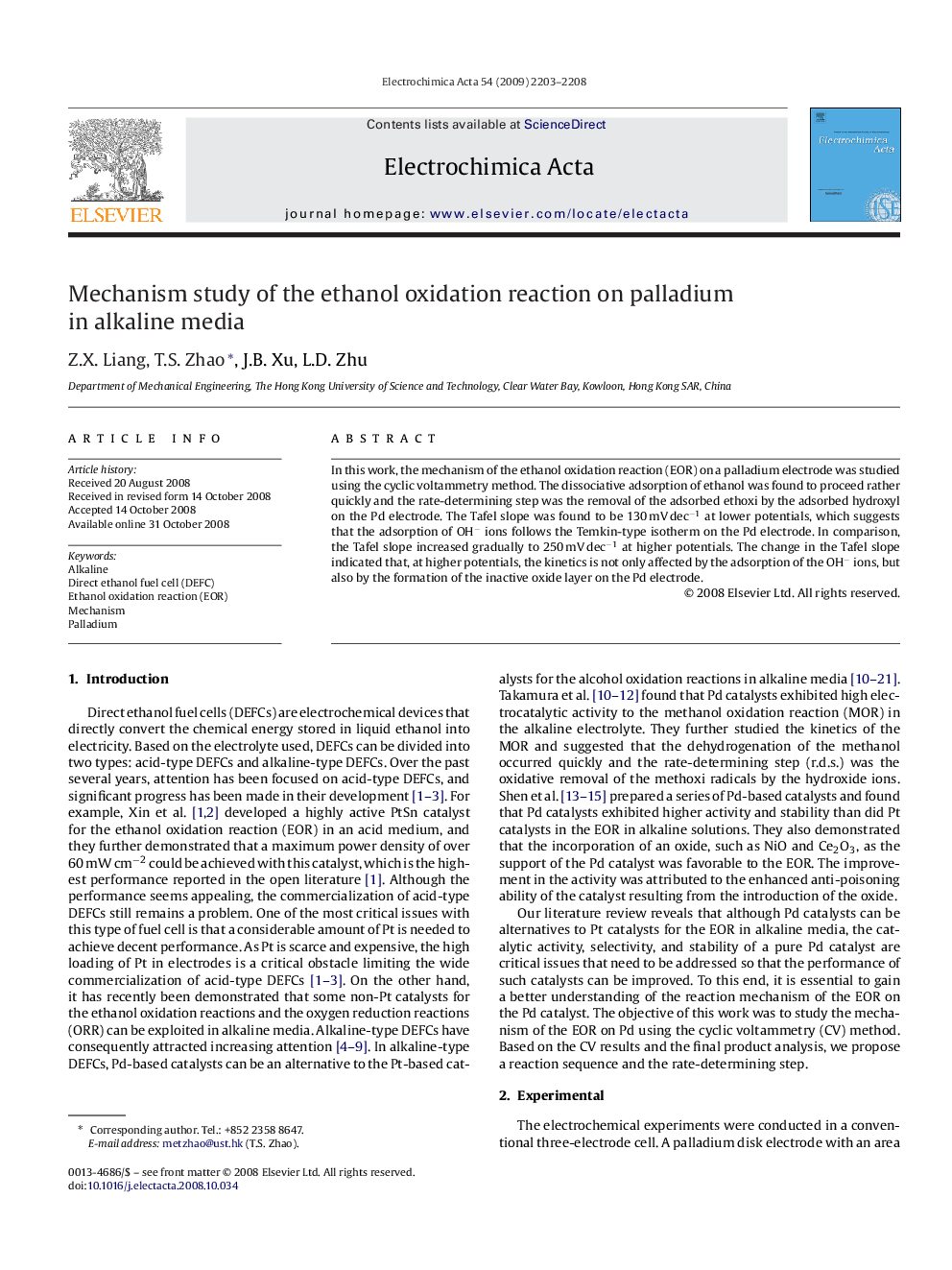| Article ID | Journal | Published Year | Pages | File Type |
|---|---|---|---|---|
| 192767 | Electrochimica Acta | 2009 | 6 Pages |
In this work, the mechanism of the ethanol oxidation reaction (EOR) on a palladium electrode was studied using the cyclic voltammetry method. The dissociative adsorption of ethanol was found to proceed rather quickly and the rate-determining step was the removal of the adsorbed ethoxi by the adsorbed hydroxyl on the Pd electrode. The Tafel slope was found to be 130 mV dec−1 at lower potentials, which suggests that the adsorption of OH− ions follows the Temkin-type isotherm on the Pd electrode. In comparison, the Tafel slope increased gradually to 250 mV dec−1 at higher potentials. The change in the Tafel slope indicated that, at higher potentials, the kinetics is not only affected by the adsorption of the OH− ions, but also by the formation of the inactive oxide layer on the Pd electrode.
